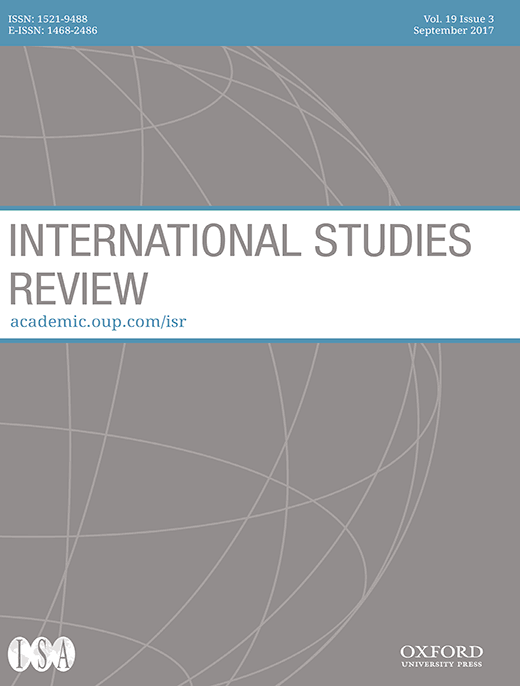-
Views
-
Cite
Cite
Thomas J. Volgy, Paul Bezerra, Jacob Cramer, J. Patrick Rhamey, The Case for Comparative Regional Analysis in International Politics, International Studies Review, Volume 19, Issue 3, September 2017, Pages 452–480, https://doi.org/10.1093/isr/vix011
Close - Share Icon Share
Extract
Regions—geopolitical spaces based on various definitions—have been judged as important for explanations about international politics. Area specialists devote their professional lives to the study of one or, perhaps, two regions. Quantitative international relations scholars use regional controls in empirical models of conflictual or cooperative relations, and they typically find that regions matter, at least statistically. Most states conduct much of their political relationships1 within regions rather than globally (Acharya 2007; Hurrell 2007). At a very minimum, geopolitical context constitutes a strong conditioning effect on how they conduct their external (and often internal) affairs.
Yet rarely are explanations of interstate relations embedded in a comparative regional perspective,2 using region as either the primary level or unit of analysis. This is due to a variety of definitional, conceptual, theoretical, and empirical issues that have retarded development of systematic, comparative, and rigorous inquiry at the regional level. Our intention here is not to address those problems fully, nor to resolve them. Instead, we wish to offer a view of the more recent quantitative literature, suggest some trends, and offer a theoretical framework that may be useful to the development of more comparative regional analysis.





